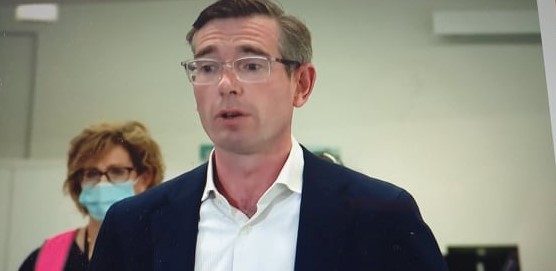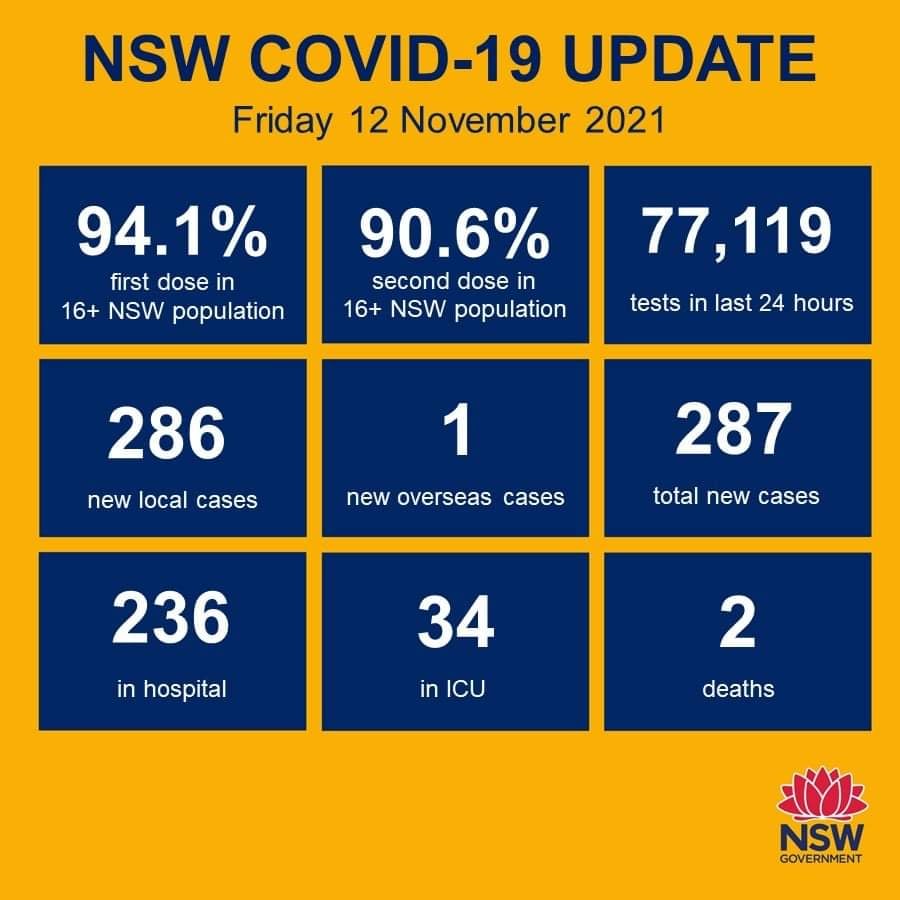
As NSW nears the target of 95% double dose vaccination level, it transitions to the COVID 19 booster program. NSW Premier Dominic Perrotet expressed satisfactior that NSW is soon to get to the desired vaccination level and has highlighted the government's focus is now towards ramping up the booster program.
Qudos Arena, which was one of Sydney's major vaccination hubs closed on Sunday as the state moves its focus to the booster shot rollout. It was a driving factor behind the high vaccination rates in Western Sydney, was was hit hard by the Delta outbreak this year.
The NSW government will now focus on smaller centres that will provide booster shots, including a new clinic in Granville, in Western Sydney, which opened on the same day. The centre has the capacity to administer 1,000 booster shots a day, with a surge capacity of 2,000 shots.
The Premier stated: "This will be a very important tool as we move through the next 12 months and transition into the booster program."
The Frequently Asked Questions about the booster is shown below.
Why is a booster needed?
Studies show that the immunity created by COVID-19 vaccines begins to wane over time.
A booster shot strengthens your immune system and helps to maintain a high level of protection against serious illness from the COVID-19 virus.
The NSW government will now focus on smaller centres that will provide booster shots, including a new clinic in Granville, in Western Sydney, which opened on the same day. The centre has the capacity to administer 1,000 booster shots a day, with a surge capacity of 2,000 shots.
The Premier stated: "This will be a very important tool as we move through the next 12 months and transition into the booster program."
The Frequently Asked Questions about the booster is shown below.
Who is eligible for a booster shot?
Eligibility for booster vaccination includes people aged 18 years and over who received their second dose of a COVID-19 vaccine 6 months or more ago.
People who are immunocompromised and have received a third primary dose of a COVID-19 vaccine are not yet recommended to have a booster (fourth) dose.
Why are people aged 12 – 17 not eligible for a booster when they can get a vaccine?
Booster doses are not currently recommended for those aged under 18 years. In this age group, severe COVID-19 is uncommon, and the primary course of COVID-19 vaccines generates a strong immune response, so the benefit from additional doses of vaccine is likely to be small.
In addition, there are currently only very limited data on the safety of repeated mRNA vaccine doses in this age group.
What about children under 12?
Children under 12 are not currently approved for COVID-19 vaccination in Australia.
Which vaccine/s will be used for booster shots?
The Therapeutic Goods Administration (TGA) has approved the Pfizer vaccine for the booster shot, even if you had another vaccine for your primary doses.
Although not preferred, people who had the AstraZeneca vaccine for their first two doses without an adverse reaction and those who can't have an mRNA vaccine (Pfizer or Moderna) for medical reasons (contraindicated) or who had a significant adverse reaction to a previous mRNA vaccine can have the AstraZeneca vaccine for their booster.
ATAGI will make a recommendation on the potential use of the Moderna vaccine as a booster in due course.
How will boosters be rolled out?
Booster vaccination will be offered to people based on the length of time since the second dose was received.
If your second dose was over 6 months ago, you should receive your booster shot as soon as possible.
While it's open to everyone over 18 years of age who has had two doses of their COVID-19 vaccine at least six months ago, people who are particularly recommended to receive a booster vaccination include:
- People at greater risk of serious COVID-19 illness, including people aged 50 years and older, those with underlying medical conditions, residents of aged care and disability facilities, and Aboriginal and Torres Strait Islander adults.
- People at increased occupational risk of COVID-19.
For more details, go to the NSW Health website.
Today's figures showing local cases, as well as hospital and ICU cases are as follows.

The NSW outbreak is increasingly concentrated in the state's Indigenous population, who account for 22 per cent of active COVID-19 cases, even though First Nations people make up only 3 per cent of the population.
In April 2020, the NSW government rejected the so-called "Aboriginal Communities order" after receiving advice from NSW Police, NSW Health and the Aboriginal Affairs Department.
NSW Police held the strongest reservations in the stakeholder group, according to a NSW Health spokesperson.